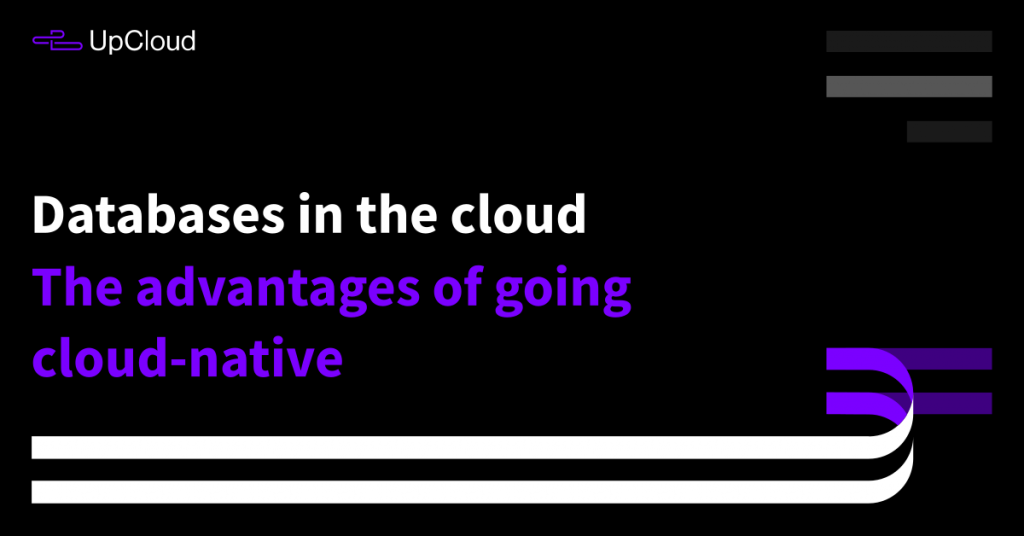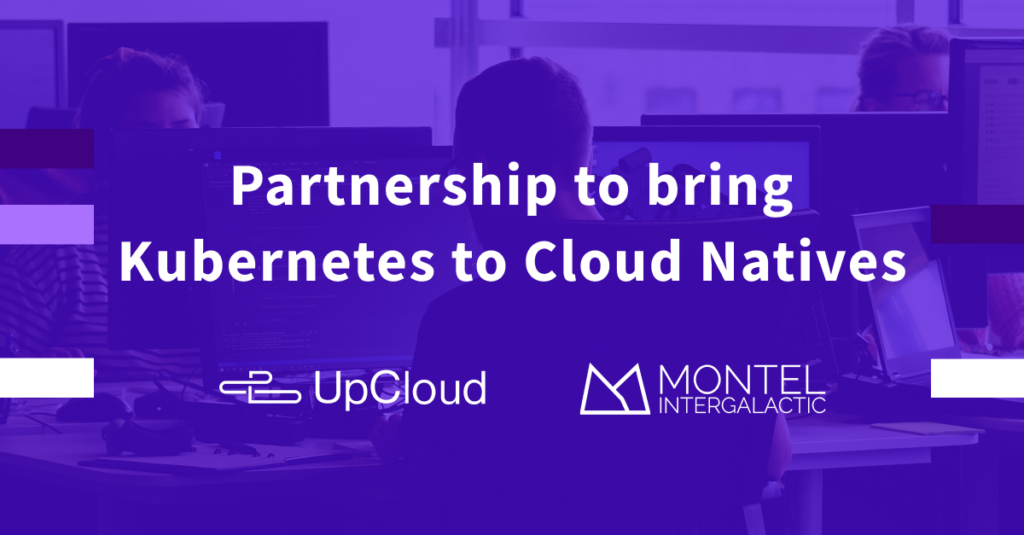In the past year, we have been working on many products and services like Managed Load Balancer, Hot Resizing, and Managed Redis Databases, that help customers to be more productive in their core business. Simplifying cloud infrastructure setup and management has been a large part of our development plans, not the least of which, Managed Kubernetes, is now just around the corner.
Container orchestration continues to gain popularity and we are excited to share that we are finalising our Kubernetes service. It’s being built with a focus on helping with a need for a high-performing container platform and what better way to do that than by joining a community of Kubernetes experts at Cloud Native Computing Foundation, aka CNCF!
UpCloud joins CNCF & The Linux Foundation
CNCF is the open-source vendor-neutral hub of cloud-native computing. It’s a non-profit organisation founded in 2015 and is a part of The Linux Foundation with a mission to advance the use of cloud-native technologies, like containers. As such it’s hosting the Kubernetes project to make cloud-native computing universal and sustainable.
We are currently developing our Managed Kubernetes offering and want to build it in alignment with the cloud-native community. To further that goal, we are participating and contributing back to the ecosystem, in the form of open-source, events and technical content.
To make things official, UpCloud has joined the CNCF and as part of the Linux Foundation, we will provide support, oversight and direction for fast-growing, cloud-native projects, starting with Kubernetes.
Take a peek behind the curtain of Managed Kubernetes
We are excited to provide you with a peek behind the curtain of the upcoming Managed Kubernetes that will enable you to deploy workloads and services quickly and easily using containers. Our Kubernetes service has been built with a focus on helping with a need for a high-performing container platform.
You can look forward to the following features:
- Managed control plane. We will take care of running the control plane while giving you full control over data plane components, such as worker nodes. You can create multiple worker groups, with different cloud server plans.
- Expose services through our Managed Load Balancer. Managed Kubernetes clusters have built-in support for exposing TCP and HTTP(S) services through our Managed Load Balancer.
- Stateful workloads. You can create stateful workloads by managing UpCloud storage volumes through the UpCloud CSI (Container Storage Interface) plugin. This is a built-in feature for all clusters.
- Tooling. Seamless integration into the UpCloud ecosystem. Managed through the same tooling and user interface as any other cloud resource on the platform. UI, Terraform, command-line tooling, SDK or pure API.
- Lifecycle management. Run cluster version upgrades and system patches automatically.
- Autoscaling. We support Kubernetes Cluster Autoscaler for provisioning dynamic node groups.
- Private networking. Secure your clusters by running worker nodes on private SDN networks without public IP connectivity.
- High availability control plane. Choose control plane sizing based on your workloads and HA needs.
The service relieves our customers’ pain of installing, maintaining, and upgrading Kubernetes cluster infrastructure. With Managed Kubernetes, all of that will happen without the hassle of dealing with servers directly. And the new service will of course integrate smoothly with other UpCloud products.
Register for Early Bird access
Want to learn more about the upcoming Managed Kubernetes? While still in development, our new Managed Kubernetes service is shaping up nicely with release in not too distant future. Therefore, we would love to have you test it out and share your thoughts!
As we are gearing up for the next testing phase, if you would like to receive an invitation for early bird access, make sure to register your interest and be among the first to test out the new service!



